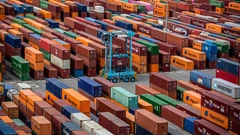Harvard Duo Powers Bangladesh’s Rickshaws With Battery Startup
(Bloomberg) -- A young company created by chance is trying to transform urban transportation in the world’s most populous region.
Harvard graduate students Nicole Mao, 33, and Yiwei Zhu, 32, have been building one of Bangladesh’s hottest startups for three years after getting stuck in the country during the pandemic. Their battery-swapping network for electric rickshaws is surging in popularity and will reach 1,000 stations next year, mainly servicing the country’s millions of such three-wheeled taxi vehicles.
The female duo’s firm, Tiger New Energy, is making rickshaw drivers’ lives easier by allowing them to swap to fresh batteries on the go. Drivers pay a fee for the service, but the time saved allows them to make more trips and earn more revenue.
“There’s immense demand,” Mao, the Dhaka-based startup’s chief executive officer, said in an interview. “As the economy grows, more people are leaving rural areas for work opportunities in the cities. That is creating demand for mobility.”
While the tuk-tuks of India and Thailand are mainly powered by gasoline or natural gas, the three-wheelers dominating the bustling streets of Dhaka and other Bangladeshi cities are mostly electric. However, charging takes time and disposal of used lead-acid batteries creates health and environmental hazards.
That’s where Mao and Zhu spotted an opportunity — though the company almost never came to be.
The Chinese pair only planned to tour Bangladesh for a week during their last spring break as students in 2021. But while they were there, a sudden wave of Covid-19 infections led to the cancellation of their China-bound return flight and several others for months.
So the friends were stuck at their home-stay in Dhaka. They finished their last few Harvard classes via Zoom calls at night, while starting to work on their startup idea during the day.
Because Mao’s family owns a battery-making company in China, the pair decided to try the same business in Bangladesh: assemble more-sustainable lithium batteries with components imported from China and sell them to local customers.
“It was a crazy idea,” said Zhu, the chief operating officer. “We were on our own to hire local workers, find land for the factory and train the employees.”
They soon found out that many rickshaw drivers were unwilling or unable to shell out $400 at one go for their products, even if they provided better mileage and longer life compared with lead-acid batteries. So they decided to try battery swapping instead — and that caught on.
Drivers pull up to an automated swap station when their batteries are running low to exchange to fresh ones, and voice instructions help make the process smoother. The stations are connected to the local power grid, and some have solar panels that help with the charging and help alleviate the effects of power shortages.
The founders raised money from the Philippines’ ADB Ventures and Singapore’s Wavemaker Partners as seed investors, helping them to start a lithium battery factory and launch the first 100 swapping stations in the port city of Chittagong, a Bangladeshi financial hub.
The company is now in the process of raising a Series A round of as much as $30 million, which it will use to bring its number of stations to 2,000 after 2025, Mao said. It also wants to expand next year to Nepal and West Bengal in India, where e-bikes are popular.
Among the startup’s challenges is a tumultuous political climate. The interim government of Bangladesh, following the unrest in the summer that resulted in the ouster of long-serving premier Sheikh Hasina, is focusing on stabilizing the economy and promoting fair market practices, according to a report from LightCastle Partners published in November.
“Amidst these changes, there is a growing belief that Bangladesh’s startup ecosystem will continue to thrive,” the consulting firm said. Local young firms have raised close to $1 billion since 2013, it said.
“In China or the US, it’s very challenging to find an area with unfulfilled demand,” said Mao. “But in Bangladesh, I always get people asking if we can help build something they don’t have.”
©2024 Bloomberg L.P.
KEEPING THE ENERGY INDUSTRY CONNECTED
Subscribe to our newsletter and get the best of Energy Connects directly to your inbox each week.
By subscribing, you agree to the processing of your personal data by dmg events as described in the Privacy Policy.
More renewables news
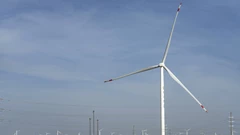
GB Energy Faces Doubts as UK Declines to Affirm Future Funds
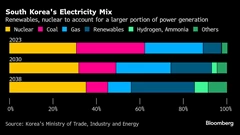
Korea Cancels Planned Reactor After Impeaching Pro-Nuke Leader
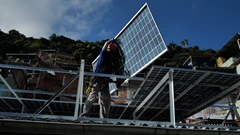
Brazil’s Net-Zero Transition Will Cost $6 Trillion by 2050, BNEF Says

SolarEdge Climbs 40% as Revenue Beat Prompts Short Covering

EU to Set Aside Funds to Protect Undersea Cables from Sabotage
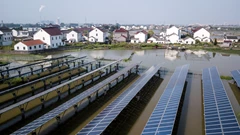
China Revamps Power Market Rules In Challenge to Renewables Boom

KKR increases stake in Enilive with additional €587.5 million investment

TotalEnergies and Air Liquide partner to develop green hydrogen projects in the Netherlands
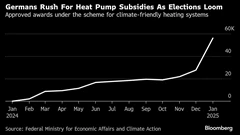
Germany Set to Scale Down Climate Ambitions
